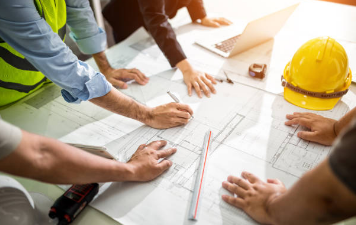Dubai, a global icon of innovation and luxury, is pioneering the future of smart home technology by integrating artificial intelligence (AI) into residential engineering. From intelligent climate control to predictive maintenance systems, Dubai’s engineers are transforming homes into highly responsive, energy-efficient, and secure living spaces.
As part of the UAE’s Smart City vision, the city is investing in AI-powered infrastructure that not only enhances comfort and convenience but also promotes sustainability and safety. In this article, we explore how engineers in Dubai are developing and deploying smart home innovations that are redefining modern urban living.
1. The Smart Dubai Initiative and AI Integration
At the heart of this transformation is the Smart Dubai Initiative, which aims to position Dubai as the happiest and smartest city in the world. One of the cornerstones of this vision is the development of AI-powered smart homes that respond to residents’ needs in real time.
Objectives of Smart Home Engineering in Dubai:
- Enhance daily living through automation and personalization
- Promote energy efficiency and reduce carbon emissions
- Increase home security and emergency responsiveness
- Utilize data analytics for predictive and proactive home management
AI engineering is central to achieving these objectives by enabling smart systems that learn, adapt, and optimize home environments.
2. AI-Enabled Home Automation Systems
One of the most prominent features of Dubai’s smart homes is intelligent automation, where AI systems manage everyday tasks seamlessly.
Key Applications:
- Voice-Activated Assistants: Devices like Alexa and Google Home control lighting, appliances, and entertainment.
- AI-Controlled HVAC Systems: Automatically adjust temperature based on occupancy and user preferences.
- Smart Lighting Solutions: Sensors and AI adjust lighting intensity depending on time of day and activity.
Impact: Greater comfort, reduced energy waste, and effortless control.
3. Predictive Maintenance and Smart Appliances
AI is revolutionizing household maintenance by shifting from reactive to predictive maintenance models.
Features:
- Sensor-Based Monitoring: Detects anomalies in appliances like refrigerators, washing machines, and HVAC units.
- Maintenance Alerts: AI systems notify residents of potential issues before breakdowns occur.
- Self-Diagnosing Appliances: Some systems can identify problems and suggest repairs or book service appointments automatically.
Impact: Lower maintenance costs, reduced downtime, and longer appliance lifespan.
4. AI for Energy Efficiency and Sustainability
With Dubai’s commitment to sustainability, smart homes are being designed to consume less energy while maintaining comfort.
Engineering Solutions:
- Smart Meters and Energy Dashboards: Provide real-time energy usage data to help residents optimize consumption.
- AI-Based Load Forecasting: Predicts energy demand to balance power distribution and reduce peak loads.
- Solar Integration: AI optimizes usage of solar energy and manages storage systems efficiently.
Impact: Lower utility bills, reduced carbon footprint, and contribution to Dubai’s green goals.
5. Advanced AI-Driven Home Security Systems
Security is a major focus in Dubai’s smart homes, and AI is making home protection more proactive and intelligent.
Smart Security Features:
- Facial Recognition and Biometric Access: Grant access only to verified individuals.
- AI Video Surveillance: Identifies suspicious behavior and alerts homeowners or authorities.
- Automated Lockdown and Emergency Response: AI can lock doors and windows or contact emergency services based on threat detection.
Impact: Enhanced safety, crime prevention, and peace of mind for residents.
6. AI-Powered Health Monitoring in Homes
Dubai is also incorporating wellness-focused technology into smart homes.
Innovations:
- Health Sensors and Wearables Integration: Monitor heart rate, sleep patterns, and physical activity.
- Smart Beds and Air Quality Sensors: Improve sleep and living conditions by adjusting room parameters.
- Fall Detection and Emergency Alert Systems: Especially useful for elderly or differently-abled residents.
Impact: Healthier lifestyles and faster medical intervention in emergencies.
7. Data Analytics and Smart Home Intelligence
Engineers in Dubai are embedding data analytics capabilities within smart home systems to support continual optimization.
Benefits of AI Analytics:
- Behavioral Learning: AI learns routines and automates actions like turning off unused devices.
- Usage Insights: Residents receive reports on energy usage, device performance, and time management.
- Community Integration: In smart residential communities, AI can manage shared amenities like pools, gyms, and parking systems.
Impact: More intelligent homes that evolve with resident needs.
8. Engineering Challenges and Solutions
Despite rapid progress, AI engineering in smart homes comes with challenges:
- Privacy and Data Protection: Engineers must ensure secure handling of personal data.
- System Compatibility: Creating standardized systems that integrate various smart devices smoothly.
- Cost and Accessibility: Balancing innovation with affordability for wider adoption.
Dubai addresses these through government regulations, innovation accelerators, and public-private partnerships.
9. Flagship Smart Home Projects in Dubai
Several iconic projects highlight Dubai’s leadership in smart home innovation:
- Sustainable City Dubai: Features solar-powered smart homes with centralized AI management.
- Dubai Silicon Oasis Smart Homes: High-tech residences equipped with intelligent automation and security systems.
- Emaar’s Smart Villas: Offer AI-enhanced living experiences with full automation and cloud-connected devices.
Impact: These developments showcase Dubai’s potential as a global model for future residential engineering.
10. The Future of AI in Dubai’s Residential Sector
Looking ahead, Dubai is set to scale its smart home engineering efforts with advancements in:
- 5G Connectivity: Enabling faster, more reliable AI device communication
- Edge Computing: Reducing latency and boosting real-time responsiveness in smart devices
- AI-Powered Urban Integration: Connecting individual homes with smart city infrastructure for optimal resource use and emergency services
Dubai’s smart homes will evolve into intelligent living ecosystems, seamlessly integrated with the broader urban fabric.
Conclusion: Redefining Home Living with AI
Dubai is not just building homes; it’s engineering intelligent environments that understand, learn, and adapt to their residents. With a unique blend of visionary governance, advanced engineering, and cutting-edge AI, Dubai is creating smart homes that offer luxury, security, efficiency, and sustainability.
As the city continues to push boundaries in technology and urban planning, its smart home innovations will serve as a blueprint for future residential development around the world.
Would you like a downloadable checklist for AI features to include in a Dubai smart home, or examples of specific tech vendors enabling these systems?
Also Read :
